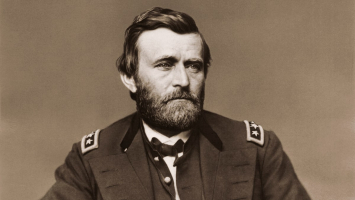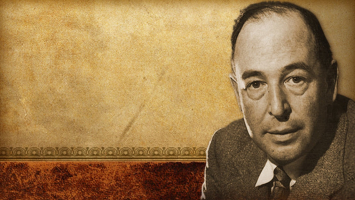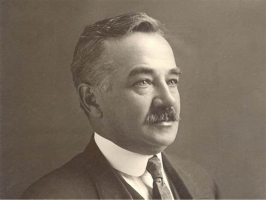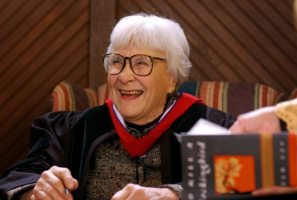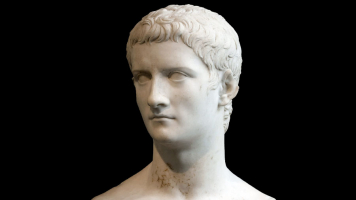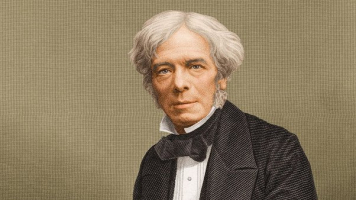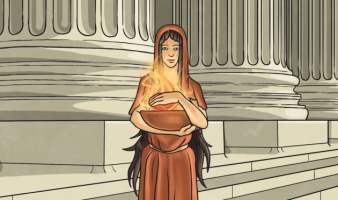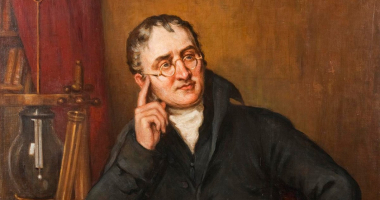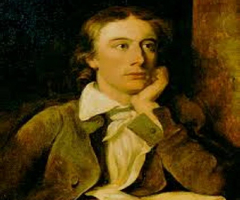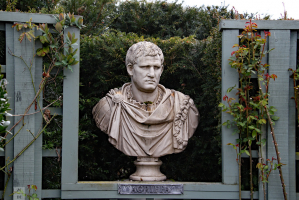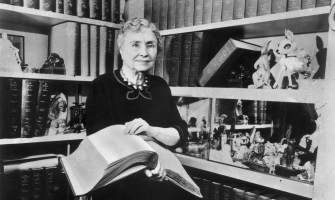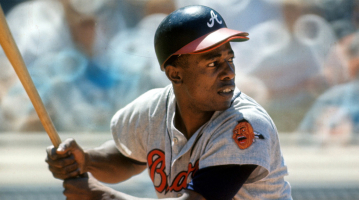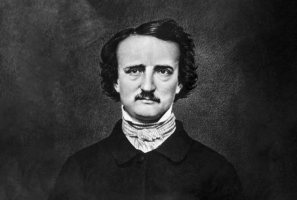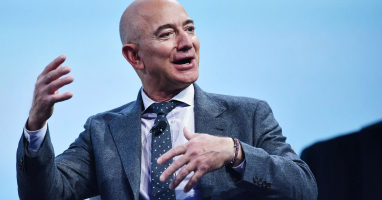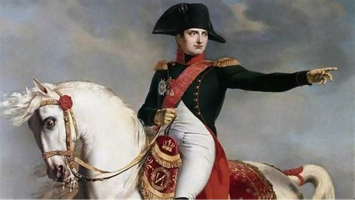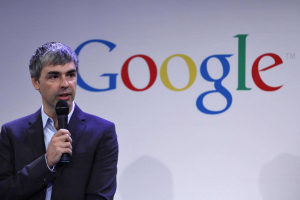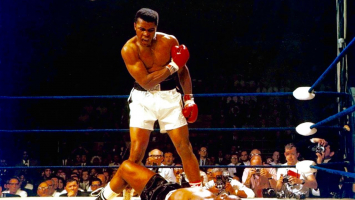Top 10 Interesting Facts about Harry S. Truman
On May 8, 1884, in Lamar, Missouri, Truman was born. On December 26, 1972, in Independence, Missouri, he passed away at the age of 88. After serving as a ... read more...county judge, Harry Truman chose to deploy atomic weapons to end World War II. Following are 10 interesting facts about Harry S. Truman's sudden ascendancy to the White House.
-
After high school, Truman didn't stay in college for very long. Instead, he worked a number of odd jobs and assisted with the family farm before eventually enlisting in the National Guard, which he left in 1911. He returned to the battlefield in 1917 and served in France during World War I. He and a friend, Eddie Jacobson, made the decision to start a haberdashery in Kansas City after they got home. The shop only lasted three years before the partners were forced to close it in 1922 as a result of the difficult postwar economy. He co-owned a men's clothing company in Kansas City from 1919 to 1922 with Eddie Jacobson, a comrade from the war. During the postwar recession, the store failed. Truman's repayment of his debt to creditors took 15 years. He declined to file for bankruptcy to get the debt forgiven. Truman nearly escaped bankruptcy, and through perseverance and a long period of time, he was able to settle his portion of the store's debts.
Fortunately, Truman was considering a political career. He was encouraged to compete for an administrative judge seat in Jackson County, Missouri, by Democrat Thomas Pendergast, the man in charge of the city's politics and the uncle of a wartime friend. After losing his bid for reelection, he was chosen two years later to serve as presiding judge. He did so for two terms before moving on to the Senate.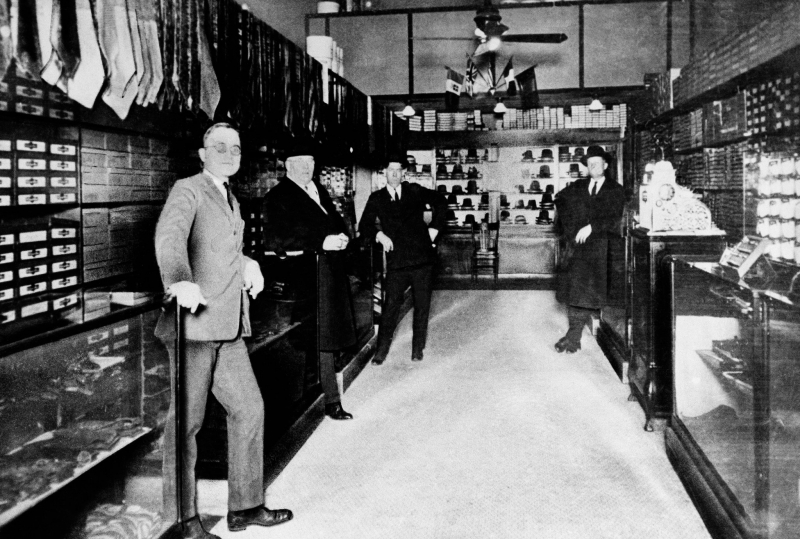
Photo: www.nytimes.com 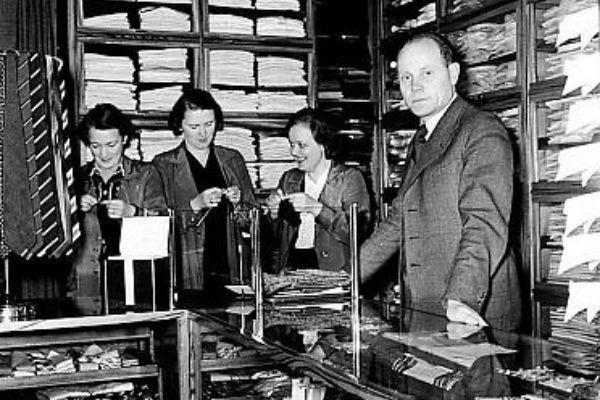
Photo: wikipedia -
Harry Truman unexpectedly became president after Franklin Roosevelt passed away on April 12, 1945, and he had no idea that he would soon have to make a choice that would alter the course of history. When it came to efforts to put the war quickly to an end, Roosevelt primarily kept Truman in the dark. Truman was approached by Secretary of War Henry Stimson shortly after taking the oath of office and informed of a project that had enormous destructive potential. Later, Stimson informed him that the "most horrible weapon ever known in human history" was likely nearing completion in the United States. President Truman ushered in the nuclear era less than four months later by directing the dropping of atomic bombs on the Japanese cities of Hiroshima and Nagasaki, which may have resulted in the deaths of up to 150,000 people.
Truman never showed remorse for the first and only occasion nuclear weapons were used in a war. He claimed that bringing about Japan's quick capitulation and the end of World War II avoided an Allied invasion of Japan that would have resulted in an even more terrifying death toll. The choice didn't seem to trouble him much, and he subsequently admitted to his sister that he "made the only decision I ever knew how to make." "It was the wrong choice. But I succeeded, "Truman emailed Mary, his sister. And I succeeded in saving 250,000 American lads, and I'd succeed again in a similar situation.
In the seven decades since Truman's choice, the world has had its fair share of nuclear dread, from Cold War conflicts like the Cuban Missile Crisis to contemporary worries about terrorists obtaining nuclear weapons. Some historians during that time criticized Truman, claiming that there were better means to get Japan to surrender. This is one of the interesting facts about Harry S. Truman.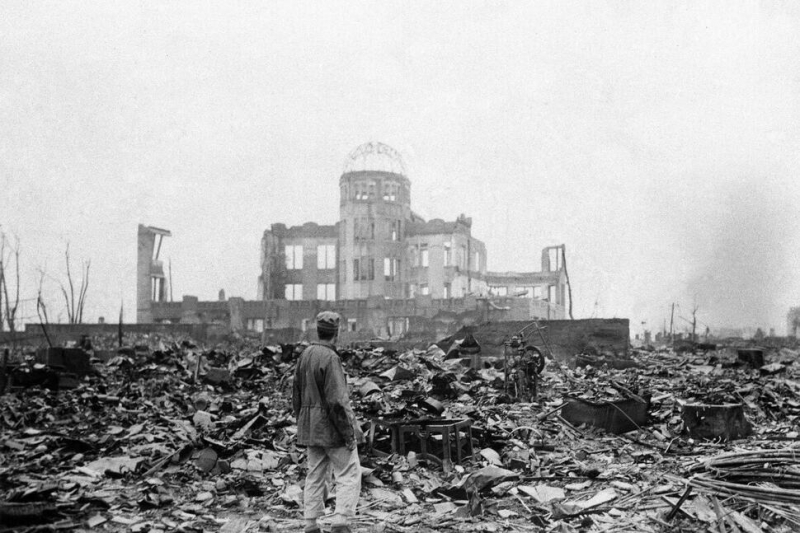
Photo: www.usnews.com 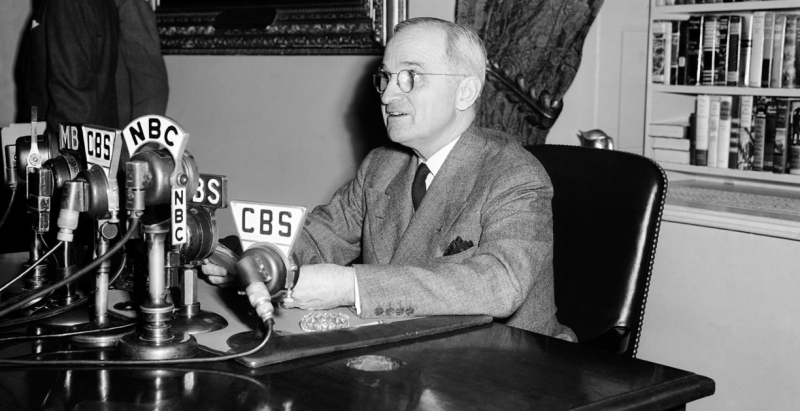
Photo: www.politico.com -
After learning that the October 30 insurrection had failed, Nationalists Griselio Torresola and Oscar Collazo in New York City devised a plan to assassinate President Harry S. Truman in order to draw attention to the Puerto Rican independence movement and the government's repression of the disturbances. They knew that while the White House was being repaired, Truman was residing at the Blair House. They anticipated that the action would increase awareness of Puerto Rico's independence movement.
The two stood outside Blair House, where Truman and his family were residing while the White House underwent renovations, both holding pistols. Blair House is located across the street from the White House. Following a shootout, a guard shot and killed Torresola but later passed away from his injuries. Collazo was shot, but he lived, and Truman eventually commuted his death sentence to life in prison (President Carter would later commute that sentence, too, and Collazo was released in 1979). At the start of the argument, Truman was dozing off upstairs; when he awoke and walked to the window, someone yelled at him to get down.
The two men understood that their endeavor was almost suicidal and that they would probably die as a result. Torresola, a proficient marksman, showed Collazo how to load and use the firearms they would be using because he had experience with other kinds. In order to scout the area, they rode the train from New York to Washington, DC. They began their operations on November 1st, 1950.
Nationalists from Puerto Rico attempted to topple the island's government two days before the attempted killing. Numerous communities experienced uprisings, including Jayuya, the hometown of the two would-be assassins and where their families currently reside. Truman backed a plebiscite in Puerto Rico in 1952 in recognition of the problems with the island's status. The continuation of Puerto Rico as a Free Associated State of the United States received 81.9 percent of the vote. Collazo was condemned to death after being found guilty in federal court, but Truman commuted the sentence to life in prison. Jimmy Carter commuted Collazo's sentence to time served in 1979, and Collazo was then freed.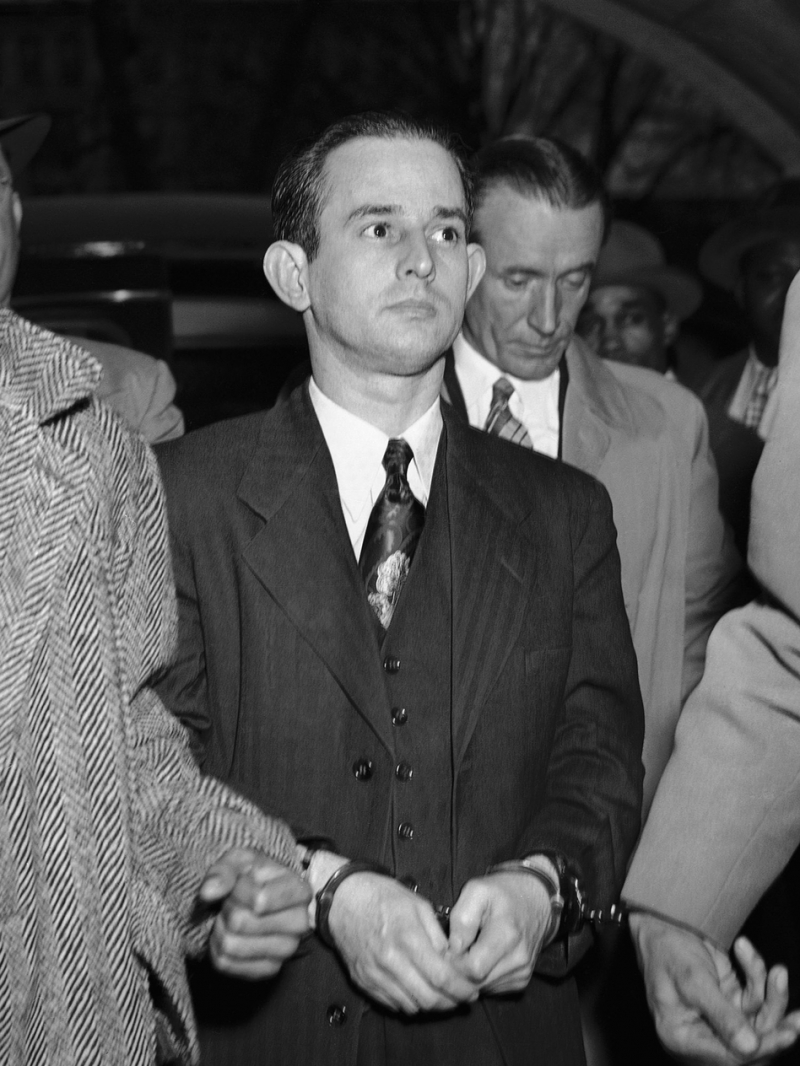
Photo: www.northcountrypublicradio.org 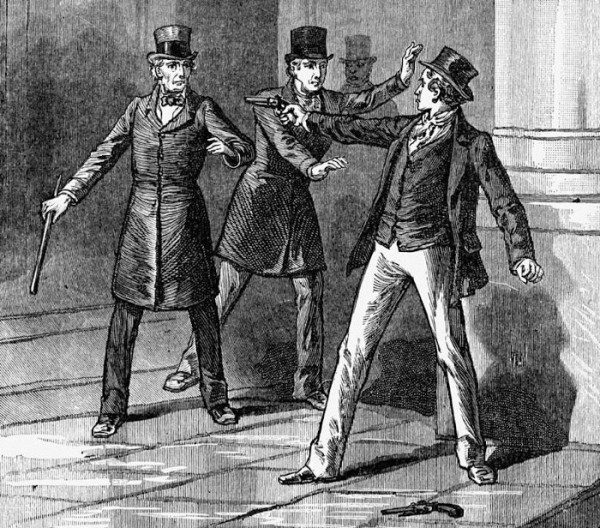
Photo: potus-geeks.livejournal.com -
Truman was friends with Elizabeth "Bess" Virginia Wallace from childhood. She traveled to Kansas City to attend a finishing school before going back to Independence. He was 35 and she was 34 when they got married, which was after World War I. Bess spent as little time in Washington, D.C., as she could get away with since she did not love her position as First Lady.
On February 13, 1885, Elizabeth Virginia Wallace was born in Independence, Missouri. When she was five and he was six, they first met in Sunday school. They went to the same elementary and secondary schools. Approximately 20 miles from Independence, near Grandview, Missouri, Mr. Truman started working on his grandfather Young's farm after receiving his degree. In 1910, Harry Truman started dating Bess. Their relationship lasted nine years. The wedding was postponed due to World War I, but it finally took place on June 28, 1919. Margaret, their lone child, was born on February 17, 1924. Truman was chosen as a candidate for vice president of the United States in 1944 after being elected to the US Senate in 1934. Bess Truman succeeded her husband as the 33rd President of the United States on April 20, 1945, the day after President Roosevelt passed away. Being a very private person, Mrs. Truman chose to live in Missouri for most of her husband's presidency, visiting Washington only during the holiday season.
She went back to Independence, Missouri, and to her grandfather's home at 219 Delaware Street with Harry S. Truman. She was a proud grandmother, a loving wife, and a mother. Truman passed away on December 26, 1972.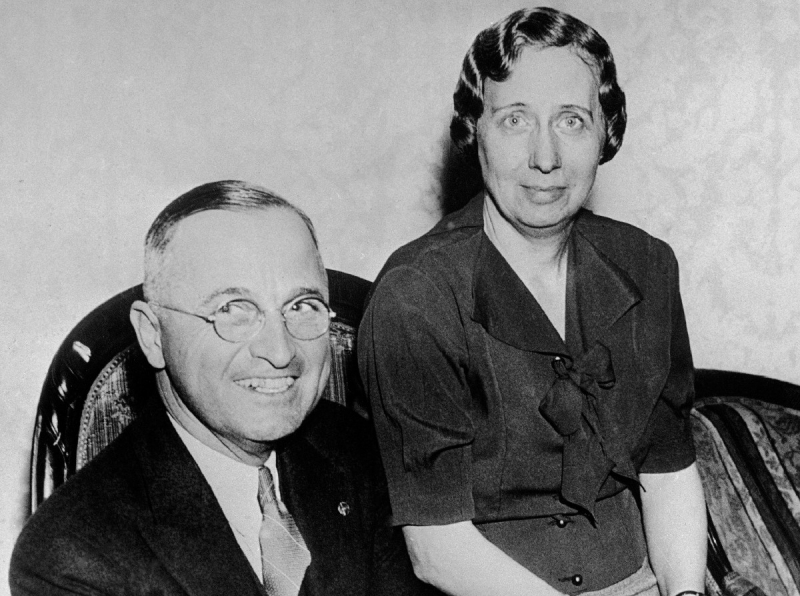
Photo: www.politico.com Video: C-SPAN -
Truman desired to attend West Point, but his vision problems prevented him from enrolling. During World War I, he served as an artillery commander while enlisting in the National Guard which is one of the interesting facts about Harry S. Truman.
During the Meuse-Argonne Offensive in World War I, Harry S. Truman served as a new artillery captain and his battery was called upon to fire artillery on advancing American soldiers. He would be threatened with a court-martial after one of his unit's barrages, but the troops who were saved by the barrage hailed him as a hero.
With over a million troops participating, the Meuse-Argonne Attack in September and November of 1918 was the biggest American offensive ever. Capt. Truman and the majority of the artillery units in the engagement had the duty of eliminating German gun units and clearing enemy positions with artillery in order to defend American forces.
However, there were stringent guidelines for artillery during these battles. Each division had a distinct area of operation, and these areas were frequently further divided by artillery regiment and battery. Truman, therefore, had specified objectives to hit and was free to engage pretty much anything in the 35th Division's sector.
The offensive's launch was legendary. As the armor rolled forward, Truman's battery in the 60th Field Artillery Brigade, which fired 40,000 rounds during the opening barrage, was expressly firing in support of Lt. Col. George S. Patton's tank brigade.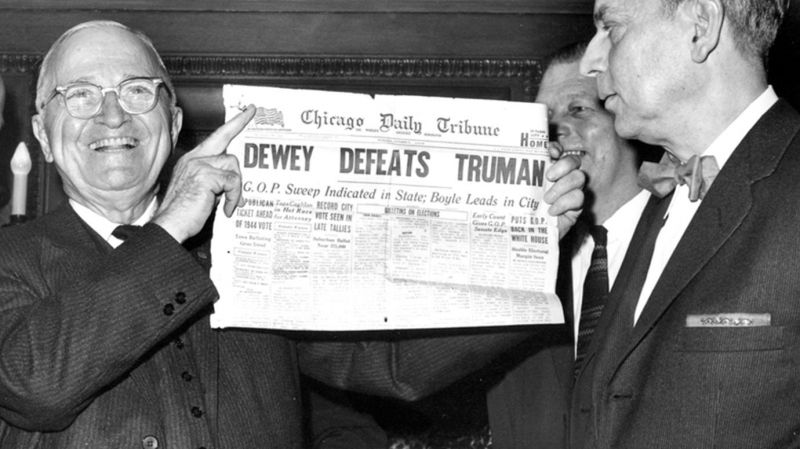
Photo: news.uchicago.edu 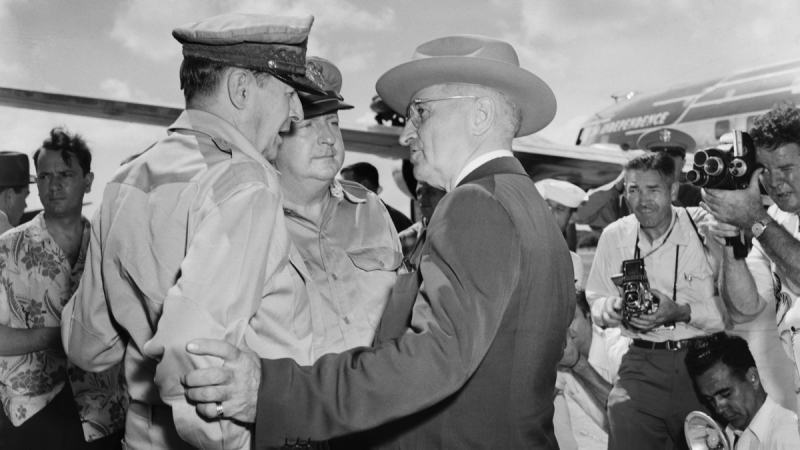
Photo: history.com -
When looking for a candidate to support a U.S. Senate contest in 1934, political boss Tom Pendergast of Kansas City received rejection letters from four other potential candidates. Truman actively ran for office during the election.
Whose name would appear on the ballot next to President Roosevelt's grew in the days preceding the Democratic National Convention. Those who were aware of Roosevelt's failing health recognized that the choice he made would probably become president before his term was out, therefore the stakes were high.
Party officials believed that the incumbent, Henry Wallace, was too liberal and eccentric to be a serious contender. Although Roosevelt refused to formally support another candidate, they were able to persuade him to be open to alternative options.
Reporters made the joke that it would be simpler to identify those who were not candidates when the list of Wallace's potential successors grew incredibly large. Along with Senators Alben Barkley and James Byrnes, Associate Justice William O. Douglas, and Speaker of the House Sam Rayburn, Truman's name was on the list. At first, Byrnes appeared to be the logical choice, and Truman initially consented to nominate him for the Convention.
But the decision had already been made by the party officials behind the scenes. They sought out Truman. Barkley was too elderly, Byrnes was unpopular with the labor movement and black voters, and Douglas was too young. Roosevelt was presented with their choice, and after hearing their arguments in favor of Truman and against the other contenders, he decided that, in the absence of Wallace, he would be content with Truman or Douglas.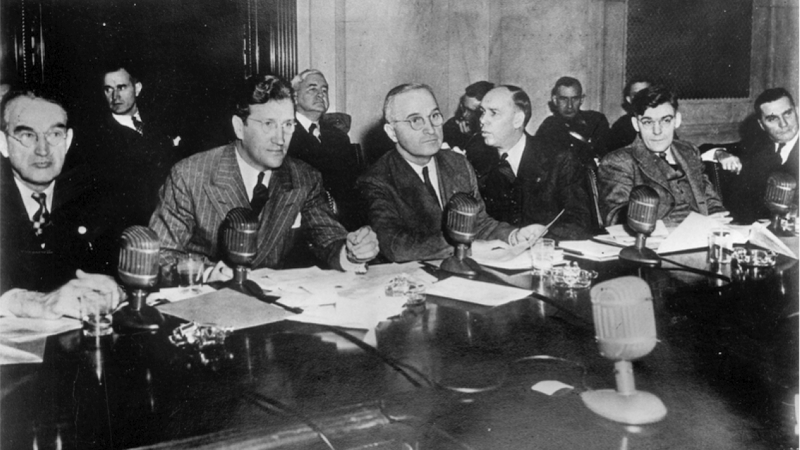
Photo: rollcall.com Video: HarrySTrumanLibrary -
Truman took the oath of office as vice president on January 20, 1945, after Roosevelt and Truman's ticket received 53% of the vote to their Republican rivals' 46%. The time he spent in the U.S. Senate helped Truman develop his reputation for fairness. He tightened regulations on American shippers and looked for waste in the defense budget. The campaign committee for Franklin Delano Roosevelt, which was preparing for Roosevelt's fourth term as president, noticed his work. Selecting a vice president was arguably more important than ever because of concerns that the ill Roosevelt wouldn't survive the term. Truman agreed and began his term of office on January 20, 1945, just 82 days before Roosevelt passed away.
On April 12, 1945, late in the day, Harry S. Truman was called to the White House and informed that President Franklin Delano Roosevelt had passed away. After serving as vice president for just 82 days, he was now in charge of 8.3 million soldiers and sailors engaged in combat in Europe and the Pacific.
This "small man from Missouri," as some of his critics referred to him, found himself suddenly one of, if not the most, powerful men in the world, and the solutions he found to the issues Roosevelt left him with would affect the globe for a long time to come. Truman had worked as a bank teller, miner, wildcatter in oil wells, and a farmer for 11 years. In World War I, he had been an artillery captain. He attempted to open a haberdashery store after the war, but it failed. He then entered politics. He served in local government for eight years before being elected to the Senate of the United States. Truman gained from all of these encounters a natural common touch and an understanding of everyday American concerns that individuals of FDR's social status did not possess.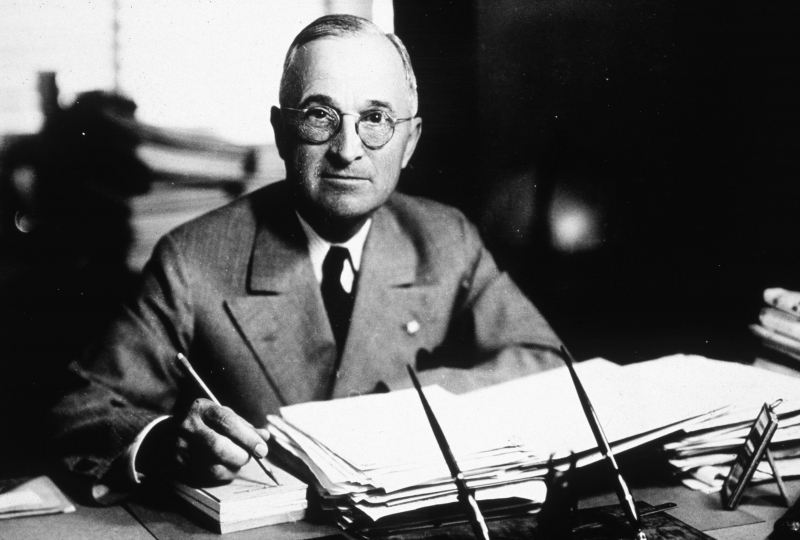
Photo: www.thoughtco.com 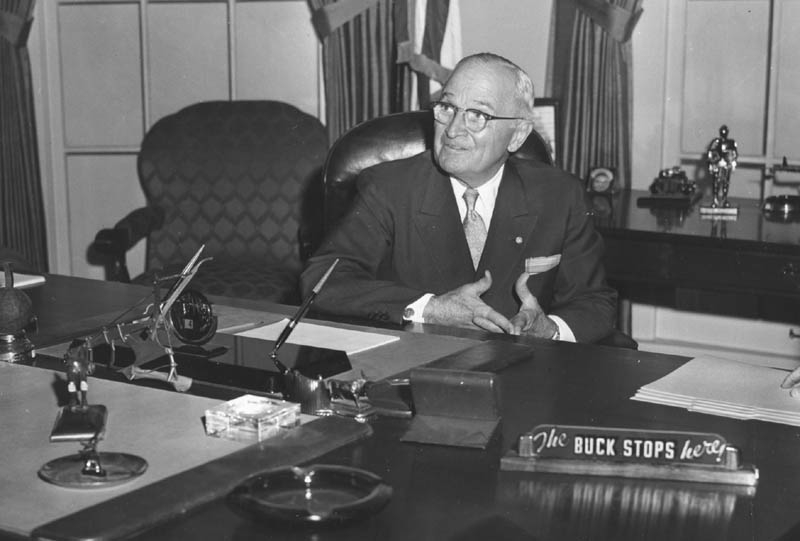
Photo: www.archives.gov -
Harry S. Truman was surprised by the sheer number of individuals who were ruled medically unfit to serve when he joined the army during World War I. According to Randy Sowell, an archivist at the Harry S. Truman Presidential Library and Museum, "He felt it was a reflection of inadequate health care for portions of the population." Sowell adds that while wealthy individuals could afford health care and the needy could obtain support from charitable initiatives, Truman believed the middle class was underserved and left out. So soon after assuming office in 1945, Truman put up what he thought to be a workable and sensible solution: universal health care funded by a kind of payroll tax.
"Healthy persons form our greatest natural resource, and prudence as well as justice demand that we husband that resource," stated Harry S. Truman in a draft statement to Congress in 1947. As a country, we should work to ensure that everyone has access to good health rather than keeping a long and productive life exclusively for the wealthy. The Wagner-Murray-Dingell Bill was never even put up for a vote, hence the plan's specifics were never worked out. Later, Truman referred to it as the biggest letdown of his presidency.
Much of the current controversy over health care spending was foreseen by Truman. He started pushing for greater public health services and care facilities in underserved rural areas just seven months after taking office. He wanted Americans to pay a monthly fee that would cover the expense of their health care should they become ill. He maintained that because the doctors were independent contractors, it wouldn't be "socialized medicine." But rather of advocating for private insurance, the American Medical Association refused. Truman's intentions failed when Democrats lost control of the Senate and the House. He later cited his failed attempt to provide national health insurance as one of his presidency's worst setbacks.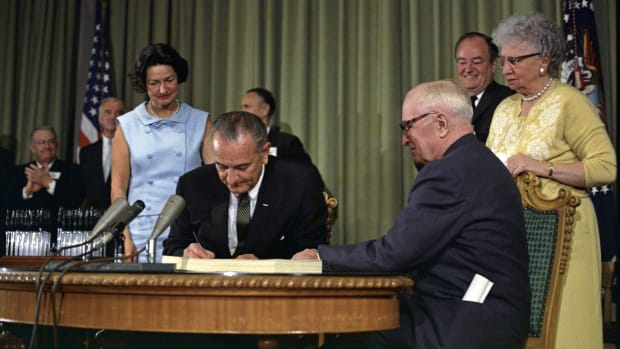
Photo: history.com Video: Apush Nhd -
John Anderson Truman, a mule trader and farmer, and Martha Ellen Truman welcomed their first child, Truman, on May 8, 1884, in Lamar, Missouri. Following some thought, John and Martha came to the conclusion that they couldn't decide on a middle name for their first kid, so they chose "S." His paternal grandfather's middle name was Shipp, whereas his maternal grandfather's was Solomon. His parents agreed to "S." (And because his S is more of a name than an initial, it can be used on its own without a period, albeit artistically, a period is most frequently used.)
When Truman's parents couldn't come to terms on a middle name, they decided to honor ancestors whose names also began with the letter "S" by giving him the middle name "S." Harry S. Truman is officially written with a period after the letter "S." That's because in his correspondence, Truman paired the letter "S" with a period. The "S" saga is explained in great depth by the Truman Library & Museum. These is the interesting facts about Harry S. Truman.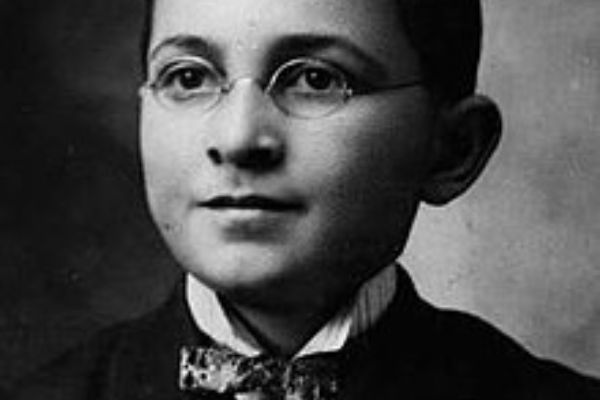
Photo: Wikipedia 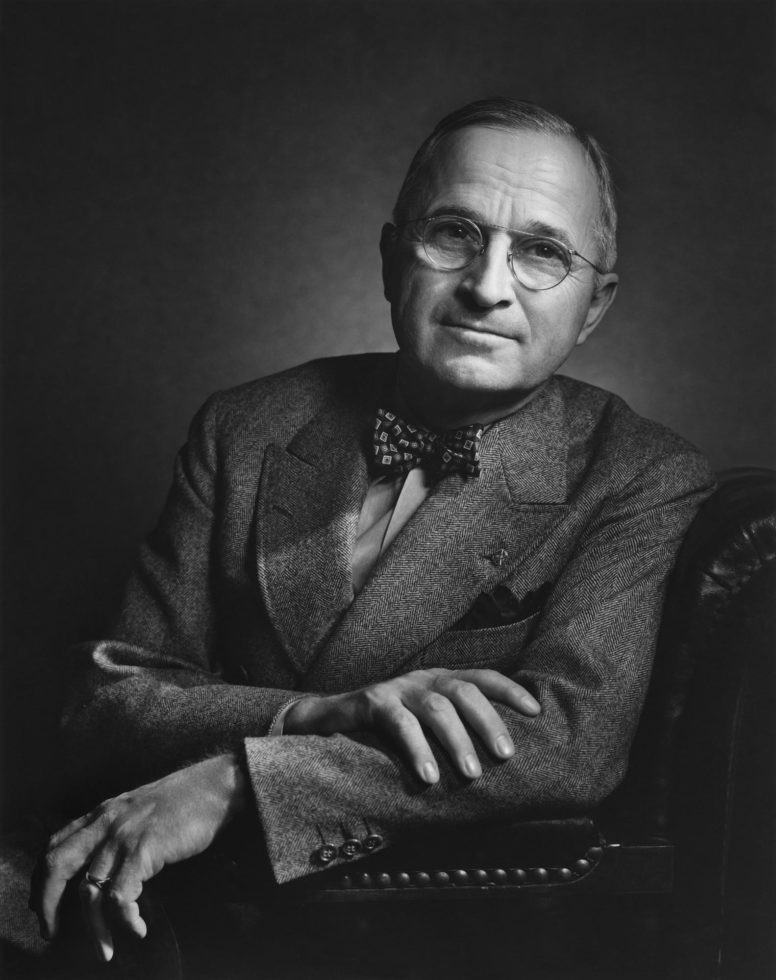
Photo: karsh.org -
On June 19, 1953, Harry Truman did something no other former president had ever done before or since he struck the road: he woke up early, and packed the trunk of his Chrysler New Yorker. No protection from the Secret Service. No press on the road. Harry was traveling alone with his childhood sweetheart Bess to see old acquaintances, see a Broadway show, celebrate their wedding anniversary in New York City, and spend some of the money he had just been given on writing his autobiography. Ideally covertly.
How Truman's attempt to fit in disastrously went awry was painstakingly described in detail by author Matthew Algeo. Unknowingly working together to break his secret were fellow diners, bellhops, cab drivers, screaming youths at a Future Homemakers of America convention, and one very law-abiding Pennsylvania state policeman. Algeo travels the same motels and diners as the Trumans did when they first took the route, and he briefly digresses into subjects like McCarthyism, the postwar American car industry, the nation's highway infrastructure, and the demise of Main Street America. By the time you reach your destination after traveling 2,500 miles, you will have a fresh appreciation for America's final citizen president.
In 1953, Truman and his wife Bess made the decision to travel cross-country five months after he left office. Presidents were not compelled to have Secret Service agents or other government escorts follow them after their term was over at the time. However, the pair miscalculated how low they could actually fly to avoid detection. Customers who couldn't comprehend why their former president was dropping in at strange locales like Decatur, Illinois, or Frostburg, Maryland, were shocked when they were regularly recognized as they stopped at wayside diners. Truman was even stopped when returning home after their 19-day trip for speeding at 55 mph in the fast lane. He wasn't given a ticket.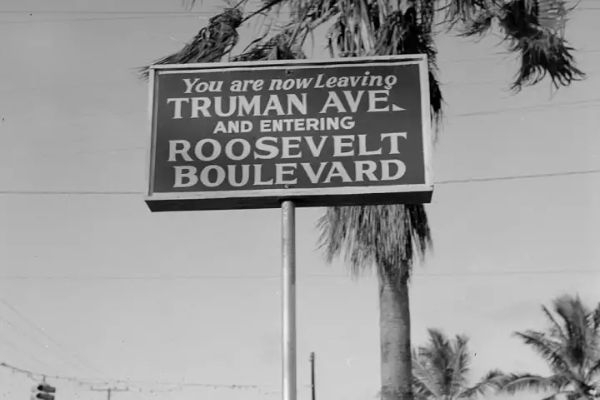
Photo: www.mentalfloss.com 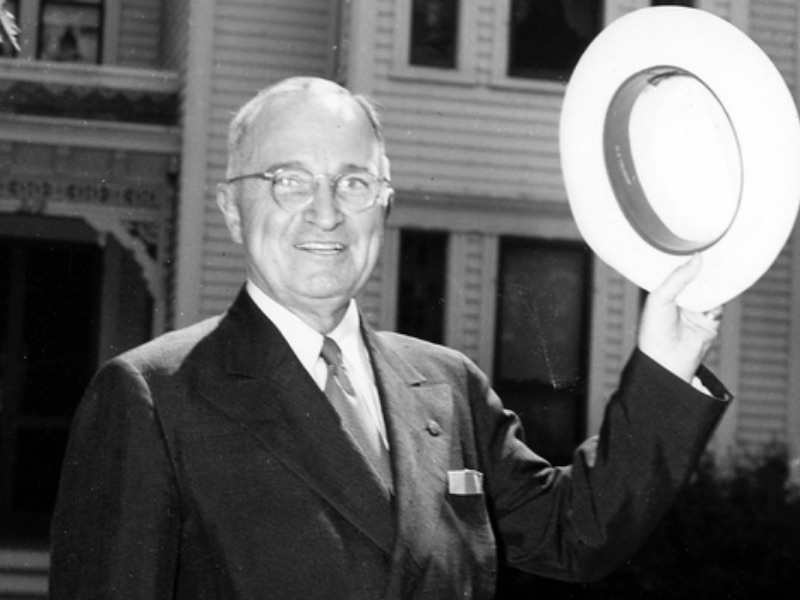
Photo: visitindependence.com












